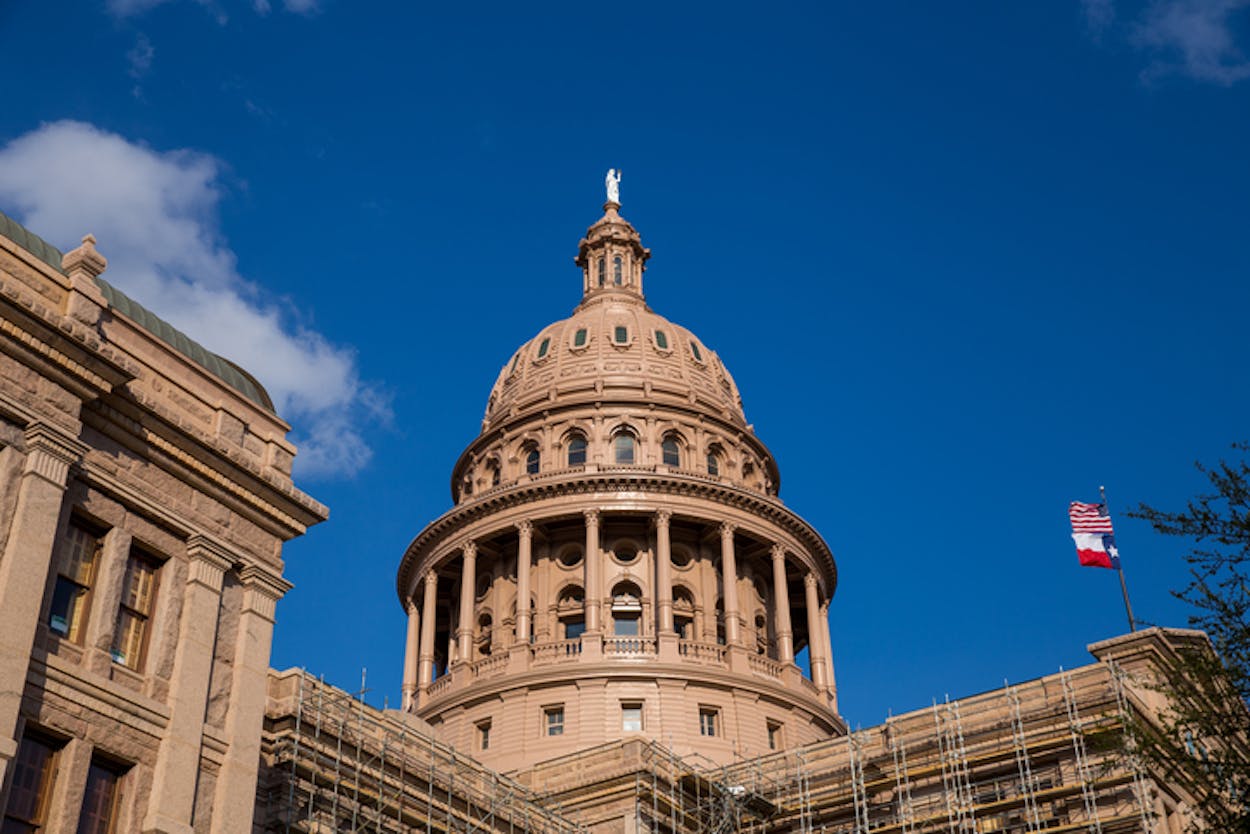Texas could find itself with an even more massive tab after its failed attempt to defend its 2013 omnibus abortion bill in court. According to a motion filed last week, the Center for Reproductive Rights, San Francisco-based law firm Morrison & Foerster, and Austin-based O’Connell & Soifer are attempting to recoup more than $4,500,000 in plaintiffs’ fees for their work fighting against House Bill 2, which the U.S. Supreme Court found unconstitutional over the summer.
That’s a huge figure, obviously—and even if the court rules in favor of the attorneys here, the exact figure could change—but it’s also just the latest (and largest) expense to Texas taxpayers in the process of passing and defending the unconstitutional law.
Back in June, the Texas Tribune reported the expenses Texas accumulated on its own in the case. The Texas Attorney General’s Office spent $786,722 defending Whole Woman’s Health v. Hellerstedt, the lawsuit that ultimately saw HB2 ruled unconstitutional, while the defense of the first lawsuit, Planned Parenthood v. Abbott (which ended when the 5th Circuit ruled in favor of the state, and which those plaintiffs declined to pursue at the Supreme Court level) cost another $311,355, bringing the grand total to just under $1.1 million.
Then there’s the cost of the special legislative session that was called in the summer of 2013 to pass HB2. As the Legislature duked it out over the abortion law, it shelved a transportation bill and legislation intended to correct a gap in Texas’s criminal justice code that left the state with no way to punish capital felonies committed by seventeen-year-old offenders. Both of those items might have passed the morning before Senator Wendy Davis began her famous filibuster, but, according to Senator Kirk Watson, then-Lieutenant Governor David Dewhurst opted to put the abortion bill on the docket ahead of the other two. Ultimately, that meant that all three needed to be addressed after the filibuster. (It’s worth noting that the transportation bill failed to pass in the House in the second session, necessitating a third one.)
At any rate, the cost of all that special legislating adds up. Back in 2013, the Dallas Morning News estimated the cost of the second session at $800,000, based on the $150 per diem granted to lawmakers each day over the 30 days of the session. Had the Legislature not pursued HB2, and subsequently passed the juvenile justice and transportation bills the first time out, that’s money that taxpayers could have put toward the Rainy Day Fund.
The path of HB2 to the Supreme Court wasn’t exactly a shock to anybody. Representative Jodie Laubenberg, who authored the bill in the House, told reporters in 2013 that “it will probably go to the Supreme Court” when challenged, a fight that she seemed comfortable with. Now that the Supreme Court found the law largely unconstitutional, Texans have paid out millions—and could be on the hook for millions more.








